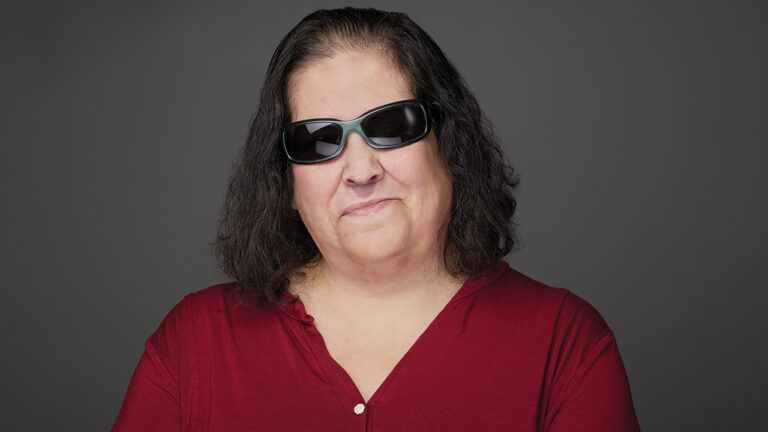Hurricanes, tornados, floods, fires and blizzards can happen to anyone at any time. They are familiar with disasters that we need to prepare for, but medical emergencies are also important. Heart attacks, strokes, falls or accidents can easily happen and catch a person off guard. Each September, National Preparedness Month encourages and reminds Americans to be prepared for disasters or emergencies in their homes, businesses and communities. Those with a visual impairment need to take extra precautions and even more so during a pandemic. Advanced planning and education can be the key to successfully dealing with a medical emergency.
Advocate for yourself
Someone with a visual impairment knows that they must speak up for themselves. This holds true when it comes to a medical emergency. Communicate your specific needs including verbal descriptions and directions to a 911 operator, paramedic or medical personnel to ensure the best outcome. This communication can help reduce stress and ease anxiety. If self-advocacy is not possible, be sure that a loved one or friend can speak on your behalf until you are able.
Learn about your local emergency room COVID-19 procedures
Many people have worries and fears about seeking emergency medical assistance, which can potentially delay treatment. Emergency rooms and hospitals follow strict guidelines for protecting people during COVID-19, including the following: universal masking, screening at all entrances, separate waiting areas for people who have or may have COVID-19, frequent cleaning and disinfecting and social distancing. Call your local emergency room to ask questions and gather information so you can be prepared in case of any future medical challenges.
Create an emergency contact list
Creating an emergency contact list will be valuable for medical personnel if you are incapacitated and not able to speak for yourself. This list can include family, friends and medical information such as insurance companies and medical doctors. House this information on your smartphone in your contact list and/or various medical apps for this purpose.
Store important documents
Important documents such as social security cards, birth records and government IDs can be hard to gather in the midst of a medical emergency. Store them all in one place in a storage unit that is both water proof and fire safe. You can also save these documents on your computer, tablet or smartphone. These options can be uploaded to a secure Internet storage site like Dropbox. These documents can then easily be accessed from the cloud on the same device.
Write a medical directive
An advance medical directive document states what to do medically if you become unable to direct your own care. It has who to contact to make medical decisions on your behalf and whether you want to be resuscitated or not. This is something to take seriously because the wrong medical care could be administered without your knowledge or approval. You can write your own document, indicating the person(s) that will be responsible for your medical care. Be sure to sign and date the document, as well as keep extra copies for yourself and others.
Have a transportation plan
Since someone with a visual impairment cannot drive, finding dependable transportation can be challenging. Without some pre-planning during a medical emergency, transportation could be the difference between life and death. During this time of COVID-19, accessing transportation has become even more challenging with limited bus routes and changes to ride share services for just daily activities. Make a list of reliable sources such as friends, family, neighbors or co-workers. Also, add to the list transportation services like cabs, and ride share services as alternatives.
Gather emergency supplies
Depending on the type of medical emergency you face, having some supplies packed and ready is helpful. Quickly accessing a standard first aid kit, OTC medications, rubbing alcohol, hydrogen peroxide and cotton balls are useful for small home emergencies. Even ice packs and a talking thermometer or other accessible medical devices that might be needed when dealing with a medical crisis. Canned soups, crackers, bottled water and Gatorade can come in handy if accessing food is difficult. Visually impaired diabetics should keep an insulated bag prepared for emergencies with extra insulin and the supplies needed to administer it. Diabetics should also stock low sugar and low carbohydrate foods in the emergency kit. Also, don’t forget your pets or guide dog when packing food and other supplies.
Now is the time to survey your life and get prepared. If and when a medical emergency happens, you will be ready. Remember the things you have put in place and try to stay calm and breathe. Being clear-headed and focused will help you to get the best medical assistance. Remember that you have done your best to plan and prepare for this incident. The initiative to prepare will help ease your mind if you do go through an emergency.



